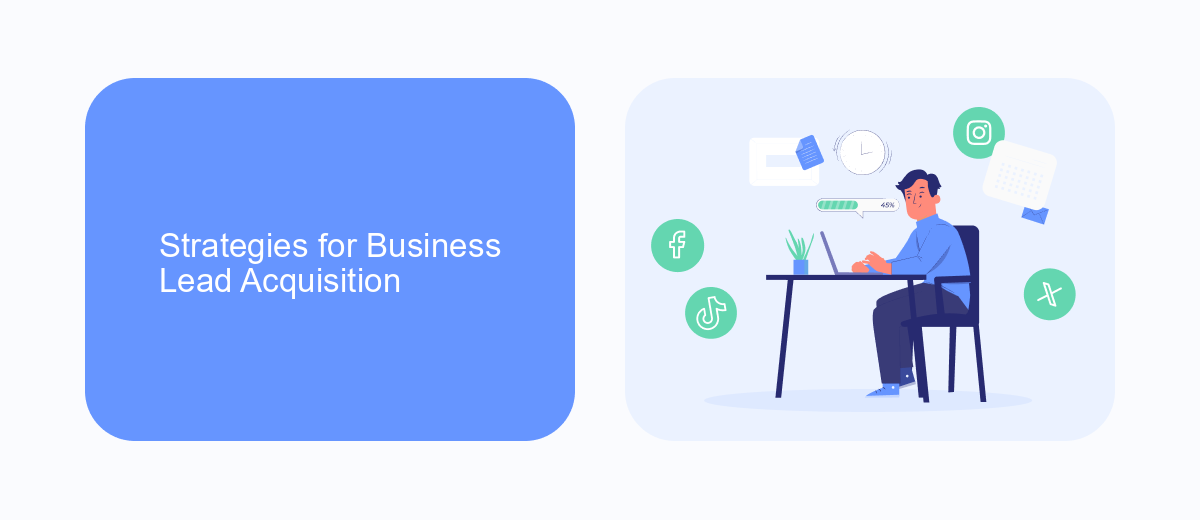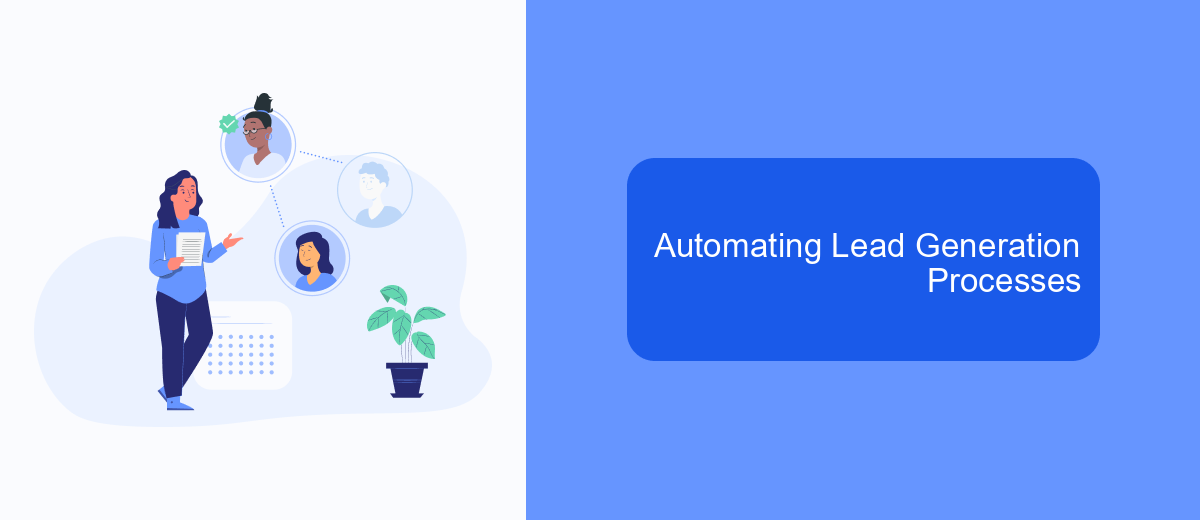In today's competitive market, effective lead generation is essential for business success. It serves as the foundation for building a robust customer base and driving revenue growth. By leveraging innovative strategies and cutting-edge technologies, businesses can identify and engage potential customers more efficiently. This article explores the fundamental aspects of lead generation, offering insights and practical tips to help businesses thrive in an ever-evolving landscape.
Defining Essential Business Lead Generation
Essential business lead generation is a critical process for companies looking to grow and sustain their customer base. It involves identifying and attracting potential customers who have shown interest in a company's products or services. The goal is to convert these prospects into loyal clients, thereby driving sales and business growth. Effective lead generation requires a strategic approach, combining various marketing techniques to reach and engage the target audience.
- Understanding the target market and creating buyer personas.
- Utilizing digital marketing channels such as social media, SEO, and content marketing.
- Implementing lead capture forms and landing pages on websites.
- Nurturing leads through personalized email campaigns and follow-ups.
- Analyzing data and metrics to optimize lead generation strategies.
By focusing on essential business lead generation, companies can streamline their marketing efforts to attract quality leads and enhance their conversion rates. This approach not only helps in building a robust customer pipeline but also ensures long-term business success. Staying updated with the latest trends and technologies in lead generation can provide a competitive edge in the ever-evolving market landscape.
Strategies for Business Lead Acquisition

Effective business lead acquisition requires a strategic approach, combining both traditional and digital methods. One key strategy is content marketing, which involves creating valuable and informative content tailored to your target audience. By addressing their needs and pain points, businesses can attract potential leads through blogs, videos, and webinars. Additionally, leveraging social media platforms to engage with prospects and share content can significantly boost visibility and generate interest. It is crucial to optimize your website with strong calls-to-action and lead capture forms to convert visitors into leads.
Integrating automation tools can enhance lead acquisition efforts by streamlining processes and improving efficiency. For instance, using a service like SaveMyLeads allows businesses to automate lead data transfer between various platforms, ensuring no potential lead is lost due to manual errors. Furthermore, networking through industry events and partnerships can open new avenues for lead generation. By combining these strategies, businesses can create a robust pipeline of potential leads, ultimately driving growth and success.
Lead Generation Software and Platforms

In today's digital landscape, leveraging lead generation software and platforms is crucial for businesses aiming to streamline their marketing efforts and maximize ROI. These tools not only automate the process of capturing and nurturing leads but also provide valuable insights into customer behavior and preferences. By integrating these platforms into their marketing strategies, businesses can enhance their lead conversion rates and optimize their sales funnels.
- HubSpot: A comprehensive inbound marketing and sales platform that offers a range of tools for lead generation, including email marketing, landing pages, and CRM integration.
- Marketo: Known for its advanced marketing automation capabilities, Marketo helps businesses engage with leads through personalized campaigns and detailed analytics.
- LinkedIn Sales Navigator: Ideal for B2B lead generation, this platform allows businesses to connect with potential leads through LinkedIn's extensive professional network.
By utilizing these platforms, businesses can efficiently manage their lead generation processes, ensuring a steady flow of qualified leads. This not only saves time and resources but also allows marketing teams to focus on crafting personalized strategies that resonate with their target audience, ultimately driving growth and success.
Automating Lead Generation Processes

In today's fast-paced business environment, automating lead generation processes is essential for maintaining a competitive edge. Manual methods are not only time-consuming but also prone to errors, which can result in missed opportunities. By leveraging automation tools, businesses can streamline their lead generation efforts, ensuring a more efficient and effective approach.
Automation allows businesses to focus on nurturing and converting leads rather than spending valuable time on repetitive tasks. With the right tools, companies can automatically capture, score, and segment leads, ensuring that sales teams are only focusing on the most promising prospects. This not only improves productivity but also enhances the overall customer experience.
- Automated email campaigns for lead nurturing
- CRM integration for seamless data management
- Chatbots for instant lead engagement
- Social media automation for broader reach
Implementing automation in lead generation processes not only saves time and reduces costs but also increases the quality of leads. By utilizing technology, businesses can ensure that their lead generation strategies are both scalable and adaptable, allowing them to respond quickly to market changes and customer needs. This strategic approach is crucial for sustaining growth and achieving long-term success.


Measuring and Optimizing Lead Generation
To effectively measure lead generation efforts, businesses must track key performance indicators (KPIs) such as conversion rates, cost per lead, and return on investment (ROI). Utilizing analytics tools allows companies to gain insights into which channels and strategies are most effective. Regularly reviewing these metrics helps businesses identify trends and adjust their tactics accordingly. Integration of CRM systems with lead generation platforms can streamline this process, providing real-time data and comprehensive reports.
Optimization of lead generation involves continuous testing and refinement of strategies. A/B testing different landing pages, call-to-action buttons, and ad copies can reveal what resonates best with the target audience. Additionally, leveraging automation tools like SaveMyLeads can enhance efficiency by seamlessly integrating various marketing platforms and automating follow-up processes. By continuously analyzing performance and making data-driven decisions, businesses can maximize their lead generation potential and ensure sustainable growth.
FAQ
What is business lead generation?
How can I improve my lead generation strategy?
What is the role of automation in lead generation?
How can I integrate my lead generation tools with other business systems?
What metrics should I track to measure the success of my lead generation efforts?
Use the SaveMyLeads service to improve the speed and quality of your Facebook lead processing. You do not need to regularly check the advertising account and download the CSV file. Get leads quickly and in a convenient format. Using the SML online connector, you can set up automatic transfer of leads from Facebook to various services: CRM systems, instant messengers, task managers, email services, etc. Automate the data transfer process, save time and improve customer service.
